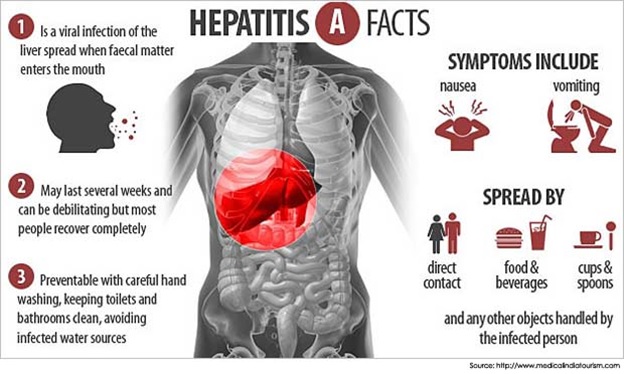
Hepatitis A Facts
Hepatitis A virus (HAV) is present in the faeces of infected persons and is most often transmitted through consumption of contaminated water or food.
- Hepatitis A is a viral liver disease that can cause mild to severe illness.
- The hepatitis A virus (HAV) is transmitted through ingestion of contaminated food and water or through direct contact with an infectious person.
- Almost everyone recovers fully from hepatitis A with a lifelong immunity. However, a very small proportion of people infected with hepatitis A could die from fulminant hepatitis.
- The risk of hepatitis A infection is associated with a lack of safe water, and poor sanitation and hygiene (such as dirty hands).
- Epidemics can be explosive and cause substantial economic loss.
- A safe and effective vaccine is available to prevent hepatitis A.
- Safe water supply, food safety, improved sanitation, hand washing and the hepatitis A vaccine are the most effective ways to combat the disease.
* Certain sex practices can also spread HAV. Infections are in many cases mild, with most people making a full recovery and remaining immune from further HAV infections. However, HAV infections can also be severe and life threatening. Most people in areas of the world with poor sanitation have been infected with this virus. Safe and effective vaccines are available to prevent HAV.
Image courtesy: Medicaindiatourism.com
Author: Sumana Rao | Posted on: May 4, 2022
« Hepatitis B Facts Hepatitis – Understand the disease and act now »






















Write a comment